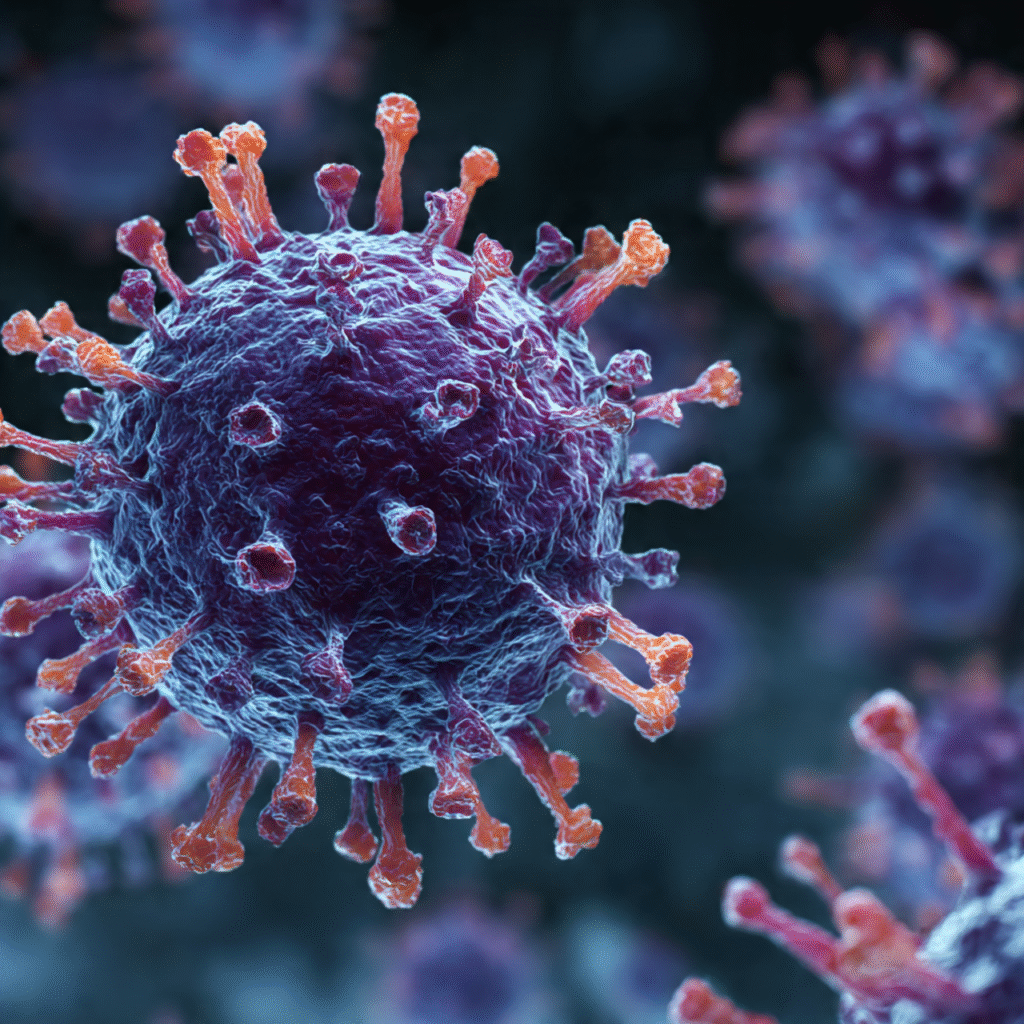
Carle Jasmin (Image : Meta AI / Gay Globe)
Norovirus: a contagious virus and the risks for certain communities
There has been much discussion recently in the news about the presence of norovirus on several cruise ships, raising the question of why this particularly aggressive virus is so widespread. At first glance, one might think that close contact on board would encourage its spread. However, a review of medical literature shows that the situation is more complex.
Even more concerning, gay men could be more exposed than the rest of the population. But why?
What is norovirus?
According to the Health Canada website, norovirus is a highly contagious virus that causes acute gastroenteritis, characterized by diarrhea, vomiting, abdominal pain, and nausea. It is a small, non-enveloped RNA virus belonging to the Caliciviridae family. Several strains, notably groups GI, GII, and GIV, can infect humans.
Infection typically occurs between twelve and forty-eight hours after exposure, and symptoms generally last from one to three days. In elderly people, children, or those with weakened immune systems, the illness can be more severe.
Norovirus is mainly transmitted via the fecal-oral route, meaning by ingesting a very small amount of the virus from contaminated hands, food, or water, or through contact with infected surfaces. It can also spread through particles emitted during vomiting.
What makes it so contagious?
Unlike influenza or COVID-19 viruses, norovirus is extremely resilient. An extremely small number of particles is enough to trigger infection, and it can survive for a long time on surfaces. It resists common disinfectants, chlorine, and peroxide, which makes eradication difficult.
Only soap — whether bar soap or dishwashing soap — applied carefully and rubbed for at least thirty seconds can dissolve the virus’s protective barrier and eliminate it effectively.
Why might gay men be more exposed?
Some LGBT people, particularly those in situations of precariousness or marginalization — such as homeless individuals, sex workers, or young people rejected by their families — may live in collective environments where hygiene is difficult to maintain. Norovirus then spreads with remarkable efficiency in these enclosed spaces.
Bars, clubs, festivals, massage parlors, and other specialized venues represent essential spaces for socializing and affirmation for LGBT communities. Their high density and close contact also make them potential hotspots for virus transmission.
A public health reality to monitor
Health authorities remain constantly vigilant regarding norovirus outbreaks, knowing that certain populations are more vulnerable. Elderly people face a higher risk of complications, while gay men could be more likely to transmit the virus in certain community contexts.
Prevention is the mother of safety
If a norovirus outbreak occurs in your community or in a facility you frequent, know that health authorities will intervene quickly to control its spread. However, the best prevention remains to avoid visiting these places until the situation returns to normal. Remember that there is currently no vaccine or specific medication to directly counter norovirus.
ADVERTISING
